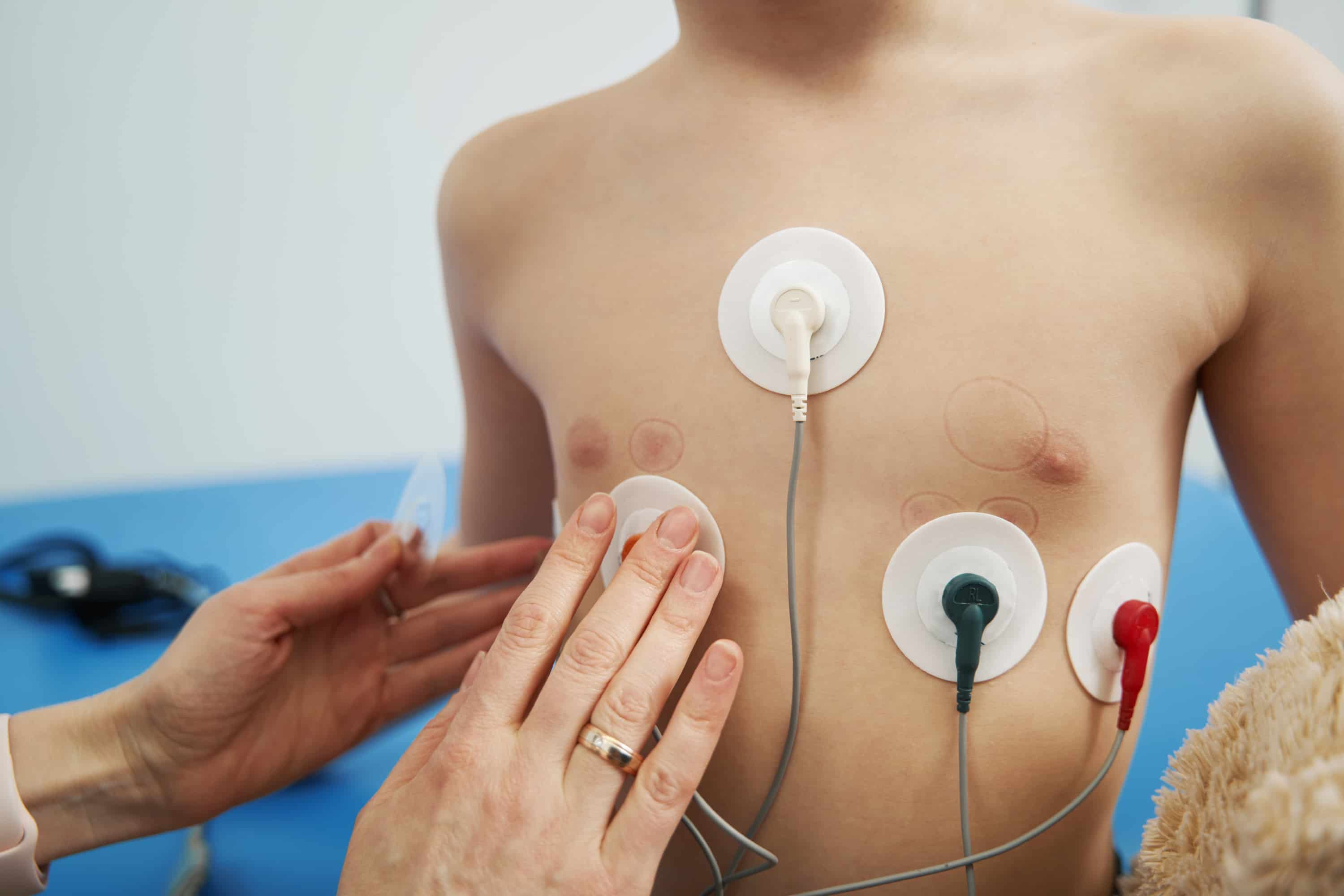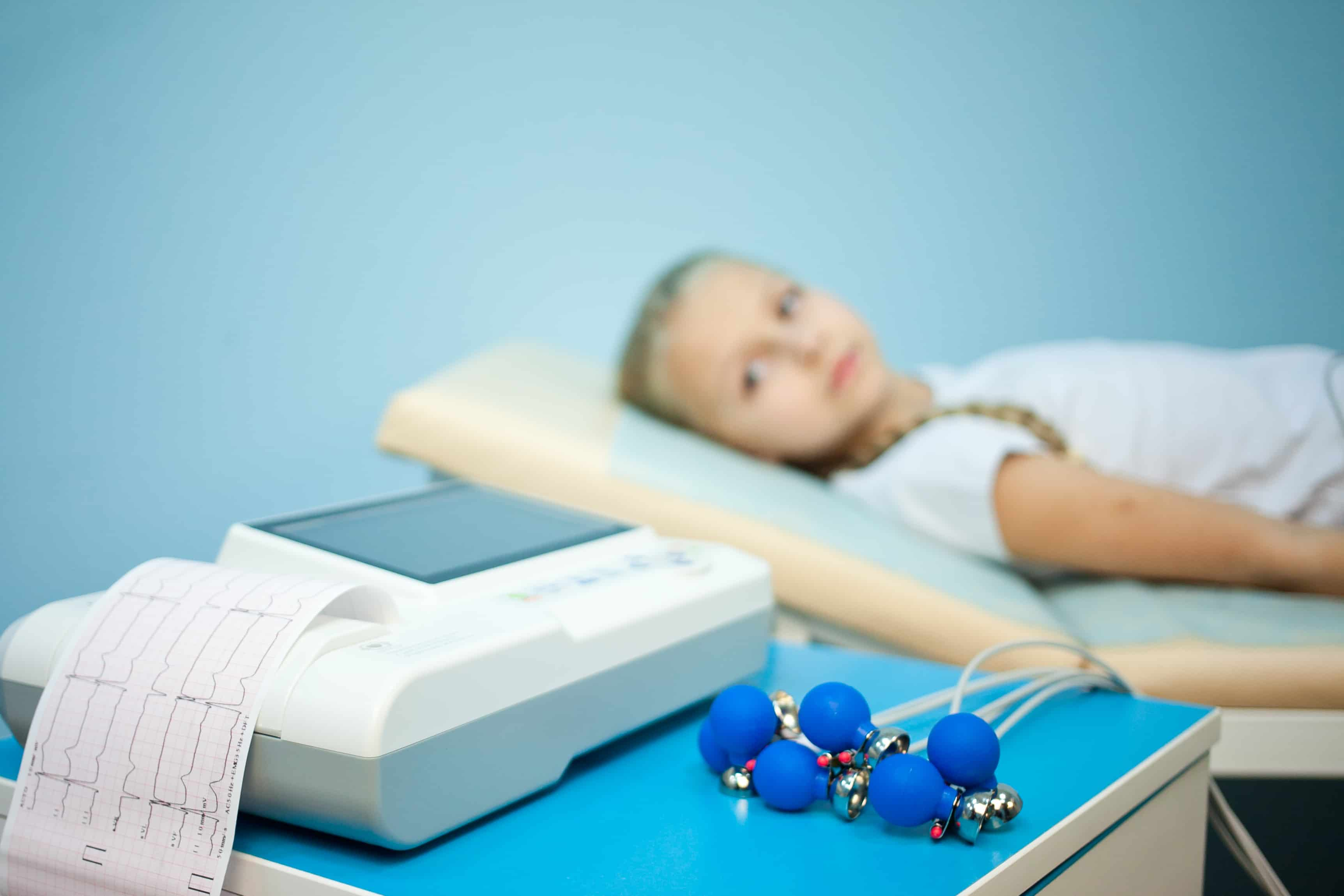Pediatric Cardiology Treatment in Turkey
Healthy Türkiye helps you find the best pediatric cardiology treatment in Turkey at affordable prices and adopts a 360-degree service approach in all areas of health through affiliated hospitals.
- Medical Treatment
- Cardiology Treatment in Turkey
- Carotid Artery Stenting in Turkey
- Cerebrovascular Disease Treatment in Turkey
- Colour-Duplex Sonography in Turkey
- Pericarditis Treatment in Turkey
- Peripheral Artery Disease Treatment in Turkey
- Coronary Heart Disease Treatment in Turkey
- EECP Treatment in Turkey
- Congenital Heart Treatment in Turkey
- Electrophysiology Study in Turkey
- Nuclear Cardiology Test in Turkey
- Pediatric Cardiology Treatment in Turkey
- Rheumatic Heart Disease Treatment in Turkey
- Spiro-Ergometry in Turkey
- Homepage
- Medical Treatment
- Pediatric Cardiology Treatment in Turkey
- About Pediatric Cardiology Treatment in Turkey
- Pediatric Cardiology Treatment Procedure in Turkey
- Types of Pediatric Cardiology Treatment in Turkey
- Congenital Heart Diseases of Pediatric Cardiology in Turkey
- 2026 Cost of Pediatric Cardiology Treatment in Turkey
- Why Choose Turkey for Pediatric Cardiology Treatment?

About Pediatric Cardiology Treatment in Turkey
Pediatric cardiology treatment in Turkey is about providing the diagnosis and treatment of cardiology diseases in infants and children. Hospitals and clinics in Turkey provide multidisciplinary care with their nurses, specialist doctors, and therapists. Pediatric cardiologists at Healthy Türkiye specialize in diagnosing and treating heart diseases in babies, children, and infants. Children might be affected by many heart problems. Some babies are born with structural defects. Pediatric cardiologists treat these defects in the heart with great success rates.
Heart ailments and problems among children below the age of 18, although not very common, are increasing at an alarming rate in the world today. This condition can be caused by reasons such as genetics, an unhealthy lifestyle, the mother’s smoking, alcohol consumption during pregnancy, and a viral infection in the first trimester of pregnancy.
Pediatric cardiology treatment in Turkey can accept a variety of disorders, from minor ailments that can be cured by short-term medicines, to ones that might require surgical intervention. Turkish pediatric cardiologists are specially trained and have gained many years of experience in diagnosing, treating, and preventing heart disease in children. They work closely with primary care pediatricians to deliver comprehensive care.
Heart disorders in children are very rare and different from those in adults. In most conditions, children are diagnosed with congenital heart defects. Congenital heart defects are the most commonly known birth defect. The defects meddle with the structure of the heart, which involves the valves, arteries, and veins of the heart.

Pediatric Cardiology Treatment Procedure in Turkey
Pediatric cardiology treatment in Turkey is a medical procedure that involves the evaluation, diagnosis, and treatment of congenital (present at birth) and acquired cardiovascular (heart and blood vessel) issues of the fetus, baby, child, adolescent, and young adult. Some babies are born with structural cardiovascular problems. Other children have issues with the electrical system that controls the heartbeat.
Pediatric cardiologists in Turkey develop long-term relationships with their young patients and, generally, with their entire families. Expert doctors who become pediatric cardiologists diagnose and treat the heart and blood vessels (cardiovascular system) of children.
Diagnosis for Pediatric Cardiology Treatment in Turkey
After birth, a healthcare provider in Turkey might suspect a diagnosis of a congenital heart defect if a child has growth delays, or changes in the color of the lips, and tongue. The care provider might hear a heart sound (murmur) while listening to the child’s heart with a stethoscope. Most heart murmurs are innocent, meaning that there is no heart defect and the murmur is not dangerous to your child’s health. However, some murmurs might be caused by changes in blood flow to and from the heart. Tests performed in Turkey to diagnose a congenital heart defect include:
Pulse oximetry: A sensor placed on the fingertip analyzes the amount of oxygen in the blood. Too little oxygen might be a sign of a heart or lung problem.
Electrocardiogram (ECG or EKG): This noninvasive test analyzes the electrical activity of the heart. Sticky patches with sensors are placed on the chest. Wires connect the patches to a computer, which displays outcomes. An ECG might help diagnose irregular heart rhythms (arrhythmias).
Echocardiogram: An echocardiogram applies sound waves (ultrasound) to create images of the heart in motion. In this case, it can be analyzed how blood passes through the heart and heart valves. If an echocardiogram is conducted on a baby before birth, it is called a fetal echocardiogram.
Chest X-ray: A chest X-ray shows the case of the heart and lungs. It can show whether the heart is enlarged or whether the lungs contain extra blood or other fluid. These might be signs of heart failure.
Cardiac catheterization: In this test, a thin, flexible tube (catheter) is placed into a blood vessel, generally in the groin area, and guided to the heart. Catheterization can allow detailed information on blood flow and how the heart works. Certain heart treatments can be conducted during cardiac catheterization.
Heart magnetic resonance imaging (MRI): A heart MRI might be done to diagnose and evaluate congenital heart defects in adolescents and adults. A heart MRI creates 3D images of the heart, which achieves accurate measurements of the heart chambers.

We Care About Your Health
Healthy Türkiye provides the best for your health and comfort. You will feel privileged with us.
7/24 Quality Personal Assistance Throughout Your Journey
Customizable for You All-Inclusive Packages
Get the Right Advice for your Health
Types of Pediatric Cardiology Treatment in Turkey
Pediatric cardiology treatment in Turkey depends on the specific type of heart problem and how severe it is. Sometimes, a congenital heart defect might have no long-term effect on a child’s health and might safely go untreated. Other congenital heart defects, such as a tiny hole in the heart, might close as a child ages. Critical congenital heart defects need treatment soon after they are diagnosed. Treatment might include medications, heart procedures or surgeries, or a heart transplant.
Medications for Pediatric Cardiology Treatment in Turkey
Medications might be given to treat the symptoms or complications of a congenital heart defect. They might be used alone or with a heart procedure. Medicines for congenital heart defects include:
Blood pressure drugs: Instances involve angiotensin-converting enzyme (ACE) inhibitors, angiotensin II receptor blockers (ARBs), and beta blockers.
Water pills (diuretics): This type of medication decreases the amount of fluid in the body, which reduces the strain on the heart.
Heart rhythm drugs: These medications, called antiarrhythmics, help control an irregular heartbeat (arrhythmia).
Surgery or Other Procedures for Pediatric Cardiology Treatment in Turkey
If your child has a severe congenital heart defect, pediatric cardiology treatment or surgery might be suggested. Some congenital heart defects can be fixed using thin, flexible tubes (catheters) without the need for open heart surgery. For example, cardiac catheterization might be used to fix holes in the heart or sites of narrowing.
During cardiac catheterization, the health care provider inserts one or more catheters into a blood vessel, generally in the groin, and into the heart. Tiny instruments are passed through the catheter to the heart to repair the defect. Some catheter processes have to be done in steps over a period of years.
A child might require open-heart surgery or minimally invasive heart surgery to repair a congenital heart defect. The type of heart surgical operation depends on the specific heart defect. If a serious heart defect cannot be repaired, a heart transplant might be required.
Rarely, if a critical defect is diagnosed before birth, a procedure can be done during pregnancy to correct the issue or help reduce complications of the defect as the child grows. This is called fetal cardiac intervention. It is rarely done and only possible in very specific circumstances.
Some children with congenital heart defects might need many procedures and surgeries throughout their lives. After congenital heart defect surgery, a child will require regular checkups by an expert heart doctor (cardiologist).

Congenital Heart Diseases of Pediatric Cardiology in Turkey
Patent Ductus Arteriosus
All babies are born with a small hole that allows passage between the pulmonary artery and the aorta. This exists because, before birth, the blood does not need to pass through the lungs to receive oxygen. Often, this hole closes within a few hours of birth. PDA occurs when this link remains open. It is most commonly seen in premature babies. The hole is closed using a special device called an umbrella or coil, delivered through a catheter. Additionally, closed heart surgery to reconnect might be conducted, depending on the patient’s age and the extent of the PDA.
Atrial Septal Defect
An atrial septal defect is a small hole in the wall between the two upper chambers of the heart (atria). Small ASDs generally close during infancy. Larger defects might cause serious problems, including right-sided heart failure, heart rhythm abnormalities, an increased risk of stroke, and a shortened life span. In some patients, the defect might be closed with catheterization. However, the condition generally requires open-heart surgery. After pediatric cardiology treatment, circulation returns to normal, and the child can grow up to be a healthy adult.
Ventricular Septal Defect
A ventricular septal defect is a hole in the wall between the two ventricles of the heart. In this condition, oxygen-rich blood gets pumped back to the lungs instead of out to the body. As a consequence, the heart has to work harder to provide enough oxygen. Without treatment, complications might involve pulmonary hypertension, heart failure due to enlargement, and endocarditis. Because some defects might close by themselves, the specialist at Healthy Türkiye might observe the child’s progress for a while. However, the patient generally needs a surgical operation to repair a VSD.
Atrioventricular Septal Defect
This congenital heart condition is a combination of anomalies. There is a large opening in the middle of the heart, and both the valve that separates the atria and the valve that separates the ventricles don’t develop fully. Both are in the form of a single, extensive valve. The atrioventricular septal defect causes oxygen-enriched blood in the left side of the heart to pass to the right side, and where it is pumped, it returns to the lungs.
Babies who develop pulmonary hypertension or other serious symptoms require surgical operation. After the operation, blood flow returns to usual. In some conditions, the patient might need a second surgery due to the inadequacy of the valves (leaky mitral valve). Success rates exceed 98 percent in Turkey.
Aortic Stenosis
This is a heart valve disorder that narrows or blocks the aortic valve opening. It makes it harder for the heart to pump blood into the body. The stenosis restricts the flow of blood out of the left ventricle. Early diagnosis is very critical to prevent irreversible damage to the heart.
Children with aortic stenosis who have mild or no symptoms must be monitored closely. In cases of moderate to severe symptoms, surgical interventions might be required, such as valvuloplasty, which is minimally invasive (a balloon is placed into the artery), valvotomy (to free the valve cusps without replacing the valve), or aortic valve replacement.
Aortic Coarctation
Coarctation of the aorta is a narrowing or constriction of areas of the aorta. This might be anywhere and to any degree. It forces the left ventricle to work harder to move blood through the narrowed part of the aorta. Finally, the left ventricle is no longer able to handle the extra workload and fails to pump blood efficiently. In some conditions, this might lead to kidney failure or heart enlargement. The narrowed part of the aorta can be repaired with balloon angioplasty or stent implantation via cardiac catheterization.
Pulmonary Stenosis
This is a very rare case that can be diagnosed in utero or shortly after birth. Pulmonary stenosis is a narrowing (stenosis) or blockage of the pulmonary valve, which causes the right ventricle to work harder. Over time, this causes damage to the heart muscle. Balloon valvuloplasty is applied with a catheter. The survival rate is 99 percent. In severe conditions, open heart surgery may be needed.
Transposition of the Great Arteries
The transposition of the great arteries is one of the most common cyanotic cardiac diseases in children. In this congenital heart defect, the positions of the pulmonary artery and the aorta are reversed, and they are linked to the wrong ventricles. Deoxygenated blood is pumped out and returned to the body. Infants with TGA are born bluish due to the low levels of oxygen in their blood.
Surgery is required immediately after birth or within the first few months of life. Medication therapy might be prescribed until the baby is ready for surgery. There are two basic types of surgery for TGA: arterial switch (the arteries are switched to their usual positions) and atrial switch (reversal of the atria). The second one is less common because it might cause irregular heartbeats due to physiological changes.
Tricuspid Atresia
In this condition, the tricuspid valve is not developed. Because of this, there is no blood flow from the right atrium to the right ventricle. As a consequence, the right ventricle remains small and underdeveloped. The blood is mixed and does not flow correctly. Depending on the child’s condition, one or more surgeries may be needed to restore heart function, including an atrial septostomy, shunting, pulmonary artery band placement, the glenn procedure, and the fontan procedure.
Truncus Arteriosus
In this case, a single blood vessel leads out of the heart instead of the normal two vessels (pulmonary artery and the aorta). In addition, VSD is present. As a consequence, the blood gets mixed. Most babies with truncus arteriosus require surgical operation within the first few weeks of life.
Hypoplastic Left Heart Syndrome
In this case, the left part of the heart is underdeveloped, including the aorta, aortic valve, left ventricle, and mitral valve. Surgical treatment is essential. The pediatric cardiology treatment plan typically includes three stages of operations: the Norwood procedure (as soon as possible after birth), the glenn procedure (six months later), and the fontan procedure (18 months–3 years of age).
After Pediatric Cardiology Treatment in Turkey
Kids treated in Turkey for a heart defect (surgically or medically) will need regular visits with a pediatric cardiologist. At first, these visits may happen frequently—likely every month or two. Later, they may be cut back, sometimes to just once a year. The cardiologist in Turkey might use tools like X-rays, electrocardiograms (ECGs), or echocardiograms to watch the defect and the effects of pediatric cardiology treatment.
Infective (or bacterial) endocarditis is when the tissue lining the heart and blood vessels become infected. Kids with heart defects used to get antibiotics before procedures that might let bacteria get into the bloodstream. But now, preventive antibiotics are given only to some kids with heart defects. This involves those who:
Have a type of congenital heart disease that causes cyanosis (bluish color of the skin)
Have had infective endocarditis before
Had their defect repaired with prosthetic material (like an artificial heart valve) or a device
The pediatric cardiologist in Turkey will know the latest guidelines and can make suggestions based on your child’s diagnosis. Children with heart defects should take good care of their teeth. They should brush and floss daily. They have regular dental visits and cleanings as frequently as the dentist suggests.
Looking Ahead for Pediatric Cardiac Treatment in Turkey
Most heart defects are now treated with advanced pediatric cardiology treatments during infancy. When your kid is old enough to understand, explain what happened. You should define the treatment in a way your child can understand. It might be tempting to be very protective. But help your kid lead as normal a life as possible. You can talk with your pediatric cardiologist or the care team at Healthy Türkiye about safe ways to do this. At Healthy Türkiye we are there to support your child and the whole family.

2026 Cost of Pediatric Cardiology Treatment in Turkey
All types of medical attention, like pediatric cardiology treatment, are very affordable in Turkey. Many factors are also included in determining the cost of pediatric cardiology treatment in Turkey. Your process with Healthy Türkiye will last from the time you decide to have a pediatric cardiology treatment in Turkey until the time you are fully recovered, even if you are back home. The exact pediatric cardiology treatment procedure cost in Turkey depends on the type of operation involved.
The cost of pediatric cardiology treatment in Turkey does not demonstrate many variations in 2022. Compared to costs in developed countries like the United States or the UK, pediatric cardiology treatment costs in Turkey are relatively low. So, it’s no wonder patients from across the world visit Turkey for pediatric cardiology treatment procedures. However, price is not the only factor affecting choices. We suggest looking for hospitals that are safe and have pediatric cardiology treatment reviews on Google. When people decide to seek medical help for pediatric cardiology treatment, they will not only have low-cost procedures in Turkey, but also the safest and best treatment.
At clinics or hospitals contracted with Healthy Türkiye, patients will receive the best pediatric cardiology treatment from specialist doctors in Turkey at affordable rates. Healthy Türkiye teams provide medical attention, pediatric cardiology treatment procedures, and high-quality treatment to patients at a minimum cost. When you contact Healthy Türkiye assistants, you can get free information about the cost of pediatric cardiology treatment in Turkey and what this cost covers.
Why Is Pediatric Cardiology Treatment Cheaper in Turkey?
One of the main considerations before traveling abroad for pediatric cardiology treatment is the cost-effectiveness of the whole process. Many patients think that when they add flight tickets and hotel expenses to their pediatric cardiology treatment costs, it will become very expensive to travel, which is not true. Contrary to popular belief, round-trip flight tickets to Turkey for pediatric cardiology treatment can be booked very affordably.
In this case, assuming you are staying in Turkey for your pediatric cardiology treatment, your total travel expense of flight tickets and accommodation will only cost less than any other developed country, which is nothing compared to the amount that you are saving. The question “Why is pediatric cardiology treatment cheaper in Turkey?” is so common among patients or people simply curious about getting their medical treatment in Turkey. When it comes to pediatric cardiology treatment prices in Turkey, there are 3 factors that allow for cheaper prices:
The currency exchange is favorable for anyone looking for pediatric cardiology treatment who has a euro, dollar, or pound;
The lower cost of living and cheaper overall medical expenses, such as pediatric cardiology treatment;
For pediatric cardiology treatment, incentives are given by the Turkish Government to medical clinics working with international clients;
All these factors allow for cheaper pediatric cardiology treatment prices, but let’s be clear, these prices are cheaper for people with strong currencies (as we said, euro, dollar, Canadian dollar, pound, etc).
Every year, thousands of patients from all over the world come to Turkey to get pediatric cardiology treatment. The success of the healthcare system has increased in recent years, especially for pediatric cardiology treatment. It’s easy to find well-educated and English-speaking medical professionals in Turkey for all kinds of medical treatment, such as pediatric cardiology treatment.
Why Choose Turkey for Pediatric Cardiology Treatment?
Turkey is a common choice among international patients seeking advanced pediatric cardiology treatment. Turkey’s health procedures are safe and effective, with a high success rate, like pediatric cardiology treatment. The increasing demand for high-quality pediatric cardiology treatment at affordable prices has made Turkey a popular medical travel destination. In Turkey, pediatric cardiology treatment is performed by highly experienced and trained doctors with the most advanced technology in the world. Pediatric cardiology treatment is done in Istanbul, Ankara, Antalya, and other major cities. The reasons for choosing pediatric cardiology treatment in Turkey are as follows:
High-quality hospitals: Joint Commission International (JCI) accredited hospitals have dedicated pediatric cardiology treatment units that are specially designed for patients. International and national strict protocols provide effective and successful pediatric cardiology treatment for patients in Turkey.
Qualified experts: The expert teams include nurses and specialist doctors, together to carry out pediatric cardiology treatment according to the patient’s needs. All the included doctors are highly experienced in performing pediatric cardiology treatment.
Affordable price: The cost of pediatric cardiology treatment in Turkey is affordable compared to Europe, the USA, the UK, Singapore, Australia, etc.
The high success rate: Highly experienced specialists, the best available technology, and stringently followed safety guidelines for post-operative care of the patient, resulting in a high success rate for pediatric cardiology treatment in Turkey.
In a recent comprehensive study on pediatric cardiology treatment in Turkey, researchers focused on evaluating the success rates of diagnosing and treating structural heart defects in infants and children. The study, conducted in collaboration with pediatric cardiologists at Healthy Türkiye, highlighted the multidisciplinary care provided by hospitals and clinics in Turkey. The research findings emphasized the critical role of early intervention in addressing heart ailments among children, shedding light on the increasing prevalence of such conditions and their potential causes, including genetic factors and maternal health during pregnancy. These insights contribute to the reliability and effectiveness of pediatric cardiology treatment in Turkey, offering valuable information for both healthcare professionals and parents.
Is Pediatric Cardiology Treatment Safe in Turkey?
Did you know Turkey is one of the most visited destinations for pediatric cardiology treatment in the world? It is ranked as one of the most popular tourist destinations for pediatric cardiology treatment. Over the years, it has also come to be a very popular medical tourism destination, with many tourists coming in for pediatric cardiology treatment. There are so many reasons why Turkey stands out as a leading destination for pediatric cardiology treatment. Because Turkey is both safe and easy to travel to, with a regional airport hub and flight connections to pretty much everywhere, it is preferred for pediatric cardiology treatment.
The best hospitals in Turkey have experienced medical staff and specialists who have performed thousands of medical services, such as pediatric cardiology treatment. All procedures and coordination related to pediatric cardiology treatment are controlled by the Ministry of Health in accordance with the law. Over many years, the greatest progress in medicine has been observed in the field of pediatric cardiology treatment. Turkey is known among foreign patients for its great opportunities in the area of pediatric cardiology treatment.
To emphasize, besides the price itself, the key factors in selecting a destination for pediatric cardiology treatment are certainly the standard of medical services, the hospital staff’s high level of expertise, hospitality, and the safety of the country.
All-Inclusive Packages for Pediatric Cardiology Treatment in Turkey
Healthy Türkiye offers all-inclusive packages for pediatric cardiology treatment in Turkey at much lower prices. Extremely professional and experienced doctors and technicians carry out high-quality pediatric cardiology treatment. The cost of pediatric cardiology treatment in European countries can be quite expensive, especially in the UK. Healthy Türkiye provides cheap all-inclusive packages for a long and short stay of pediatric cardiology treatment in Turkey. Because of many factors, we can provide you with many opportunities for your pediatric cardiology treatment in Turkey.
The price of pediatric cardiology treatment differs from other countries due to medical fees, staff labor prices, exchange rates, and market competition. You can save much more on pediatric cardiology treatment in Turkey compared to other countries. When you purchase a pediatric cardiology treatment all-inclusive package with Healthy Türkiye, our healthcare team will present hotels for you to choose from. In pediatric cardiology treatment travel, the price of your stay will be included in the all-inclusive package cost.
In Turkey, when you purchase pediatric cardiology treatment all-inclusive packages through Healthy Türkiye, you will always receive VIP transfers. These are provided by Healthy Türkiye, which has contracted with highly qualified hospitals for pediatric cardiology treatment in Turkey. The Healthy Türkiye teams will organize everything about pediatric cardiology treatment for you and have you picked up from the airport and safely brought to your accommodation. Once you are settled in the hotel, you will be transferred to and from the clinic or hospital for pediatric cardiology treatment. After your pediatric cardiology treatment has been successfully completed, the transfer team will return you to the airport in time for your flight home. In Turkey, all packages of pediatric cardiology treatment can be arranged upon request, which relaxes the minds of our patients. You can reach out Healthy Türkiye for everything you need to know about pediatric cardiology treatment in Turkey.
The Best Hospitals in Turkey for Pediatric Cardiology Treatment
The best hospitals in Turkey for pediatric cardiology treatment are Healthy Türkiye, Healthy Türkiye, Memorial Hospital, Acıbadem International Hospital, and Medicalpark Hospital. These hospitals attract patients from all over the world seeking pediatric cardiology treatment due to their affordable prices and high success rates.
Best Doctors and Surgeons in Turkey for Pediatric Cardiology Treatment
The best doctors and surgeons in Turkey for pediatric cardiology treatment are highly skilled professionals who offer specialized care and advanced procedures. With their expertise and state-of-the-art techniques, these specialists ensure that patients receive high-quality pediatric cardiology treatment and achieve optimal health results.

Frequently Asked Questions
The most commonly seen type of heart defect is a ventricular septal defect (VSD).
Cyanotic congenital heart disease, a longer duration of CPB, high inotropes on leaving the operating theater, and an increase in blood lactate are associated with major complications in children after pediatric cardiac surgery.
The baby’s recovery period can differ based on the seriousness of the condition and the surgery performed. This period may vary from 3 days to a couple of months. The baby will need frequent follow-up visits with the specialist. The baby’s parents must take adequate precautions to avoid any kind of infection.
A bit fewer than 1 in 100 babies is born with some form of congenital heart defect, and about a quarter of those infants will require either surgical or catheter-based intervention to repair it.
Pediatric cardiologists in Turkey are specially trained and have the expertise needed to treat children. They know how to talk to the kids and make them feel relaxed. In addition, their offices are decorated with cartoon characters and toys.
